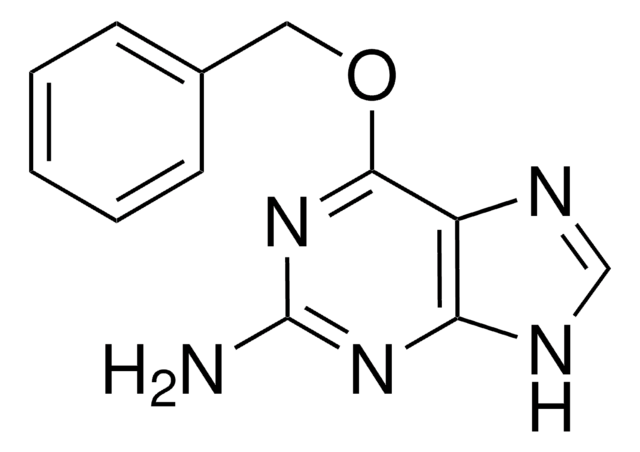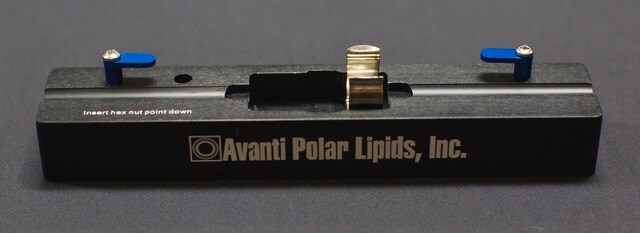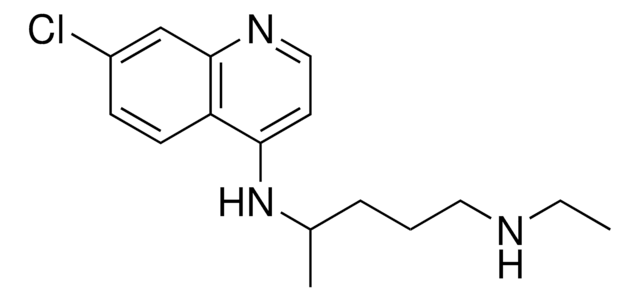SMB00963
Desethylchloroquine
≥95% (HPLC)
Synonym(s):
7-Chloro-4-{[4-(ethylamino)-1-methylbutyl]amino}quinoline, 4-[[1-Methyl-4-((ethylamino)butyl]amino)]-7-chloroquinoline, 7-Chloro-4-(4-N-ethylamino-1-methylbutylamino)quinoline, N-Desethyl chloroquine, N-Desethylchloroquine, N4-(7-Chloro-4-quinolinyl)-N1-ethyl-1,4-pentanediamine, Monodeethylchloroquine, Monodesethylchloroquine
About This Item
Recommended Products
biological source
synthetic
Quality Level
grade
research grade
Assay
≥95% (HPLC)
form
powder or crystals
technique(s)
HPLC: suitable
color
white to off-white
shipped in
wet ice
storage temp.
2-8°C
SMILES string
ClC(C=C1)=CC2=C1C(NC(CCCNCC)C)=CC=N2
InChI
1S/C16H22ClN3/c1-3-18-9-4-5-12(2)20-15-8-10-19-16-11-13(17)6-7-14(15)16/h6-8,10-12,18H,3-5,9H2,1-2H3,(H,19,20)
InChI key
MCYUUUTUAAGOOT-UHFFFAOYSA-N
Looking for similar products? Visit Product Comparison Guide
General description
Application
Other Notes
Signal Word
Warning
Hazard Statements
Precautionary Statements
Hazard Classifications
Acute Tox. 4 Oral
Storage Class Code
11 - Combustible Solids
WGK
WGK 3
Flash Point(F)
Not applicable
Flash Point(C)
Not applicable
Regulatory Listings
Regulatory Listings are mainly provided for chemical products. Only limited information can be provided here for non-chemical products. No entry means none of the components are listed. It is the user’s obligation to ensure the safe and legal use of the product.
JAN Code
SMB00963-VAR:
SMB00963-BULK:
SMB00963-25MG:
SMB00963-5MG:
Choose from one of the most recent versions:
Certificates of Analysis (COA)
Don't see the Right Version?
If you require a particular version, you can look up a specific certificate by the Lot or Batch number.
Already Own This Product?
Find documentation for the products that you have recently purchased in the Document Library.
Our team of scientists has experience in all areas of research including Life Science, Material Science, Chemical Synthesis, Chromatography, Analytical and many others.
Contact Technical Service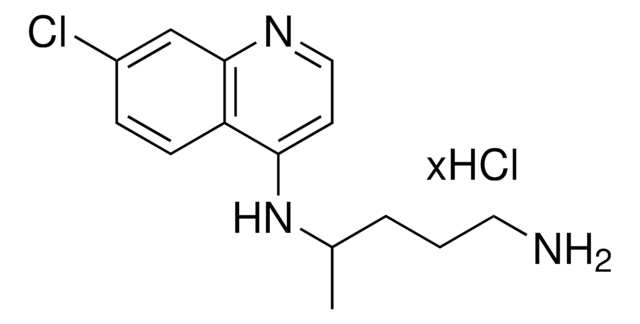

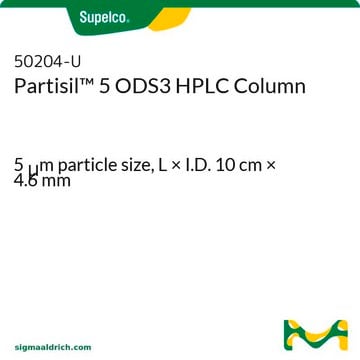
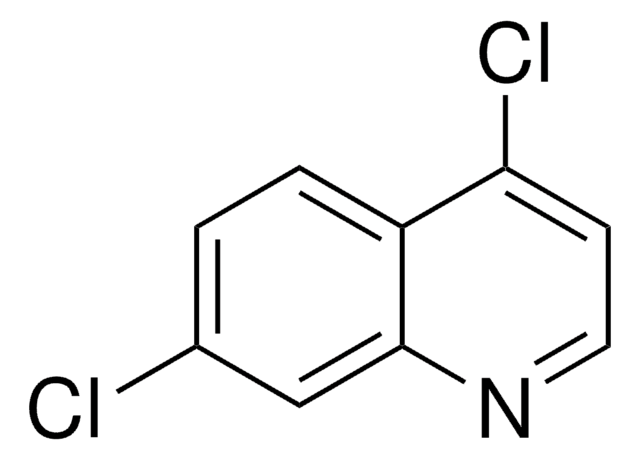
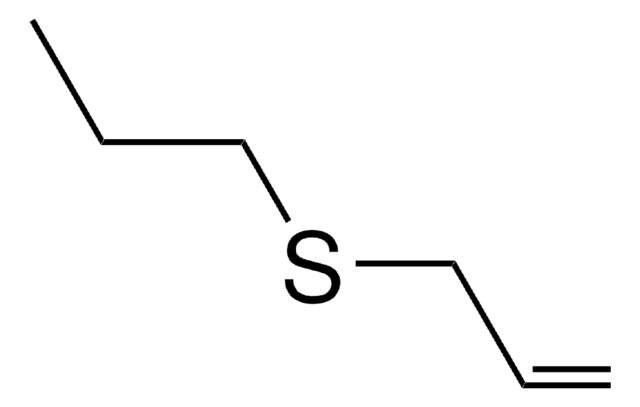
![2-[2-(2-Azidoethoxy)ethoxy]ethanol solution ~0.5 M in tert-butyl methyl ether](/deepweb/assets/sigmaaldrich/product/structures/374/007/eea7ca74-41e4-4aac-af71-c93c37ec0a5a/640/eea7ca74-41e4-4aac-af71-c93c37ec0a5a.png)
